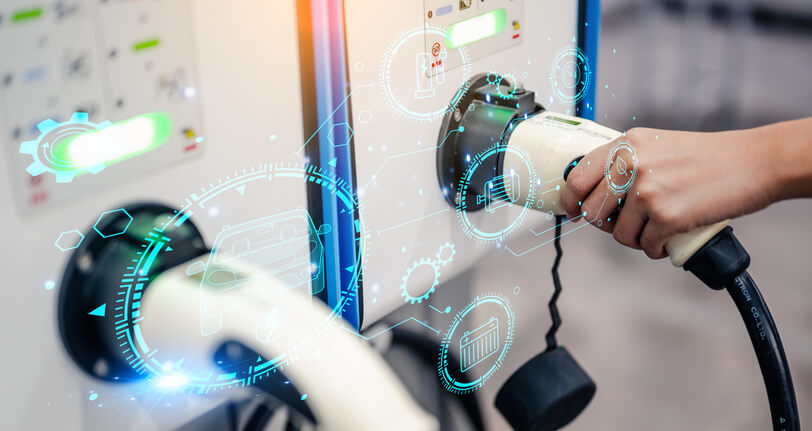Considering Automotive School? Explore the Role of Vehicle Control Units in EVs
Electric vehicles represent a transformative leap in automotive technology, and at the core of this innovation lies the Vehicle Control Unit (VCU). Understanding the role of the VCU is essential for those considering automotive school, especially hybrid technology training.
At ATC, we offer a specialized program that prepares students to work on the cutting-edge technology that powers EVs. Keep reading to discover the role of VCUs and how ATC will equip you to succeed in the electric vehicle industry.
What Is a Vehicle Control Unit?
The VCU can be thought of as the brain of an electric vehicle. Much like a computer’s central processing unit, the VCU manages and harmonizes the various systems that keep an EV running efficiently and safely. It oversees essential subsystems such as the motor drive, battery management, thermal management, and energy regeneration systems. The VCU optimizes performance, safety, and energy efficiency by ensuring these components work seamlessly together.
At the heart of the VCU lies sophisticated software and hardware that processes data from sensors, executes control algorithms, and facilitates communication between different vehicle components. The integration of advanced technologies, such as communication interfaces like CAN and Ethernet, makes the VCU an indispensable part of modern EVs.
This control unit also supports features like advanced driver assistance systems (ADAS), enhancing safety and enabling automation. In the seventh module of the hybrid technology program at our automotive school, we cover EV control systems in detail, ensuring that students have a solid working knowledge of EV components.

How VCUs Revolutionize Electric Vehicles
The transition from combustion engine vehicles to EVs has significantly expanded the responsibilities of vehicle control units. Unlike traditional Engine Control Units (ECUs), which focus primarily on engine performance and emissions, VCUs must manage the complex interplay of electrical and mechanical systems in EVs.
One key area where VCUs excel is energy management. By regulating the power flow between the battery and the motor, the VCU ensures that energy is used efficiently, extending the vehicle’s range. It also controls regenerative braking systems, capturing kinetic energy and converting it back into electrical energy for storage in the battery. This process conserves energy and reduces wear on mechanical braking components.
Additionally, the VCU plays a pivotal role in vehicle safety. It monitors the system for potential issues, triggering warnings or diagnostics when abnormalities are detected. By interfacing with ADAS, the VCU supports features like emergency braking and adaptive cruise control, which rely on real-time data for precision and reliability. These advancements highlight the VCU’s significance in meeting the demands of modern consumers who prioritize performance, sustainability, and safety.

How Our Automotive School Prepares You for Success in the EV Industry
At the Automotive Training Centre, our Hybrid and Electric Vehicle Mechanic Introductory Course is designed to provide students with the foundational knowledge and skills needed to excel in the electric vehicle industry. The program introduces students to the revolutionary changes in automotive technology and equips them with the expertise to work safely and effectively on hybrid and electric vehicles.
The course positions students at the forefront of the exciting EV industry. With hands-on training and expert instruction, our graduates are well-equipped to meet the demands of the electric vehicle revolution. If you’re considering automotive school and are eager to explore the future of transportation, ATC offers the perfect starting point. By understanding the intricacies of VCUs and other EV systems, you’ll gain valuable skills and contribute to a more sustainable and innovative automotive industry.
Are you ready to start hybrid and electrical mechanic training?
Contact ATC Montreal to learn more!


